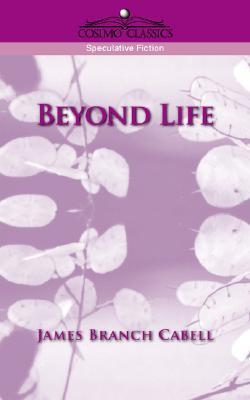What do you think?
Rate this book


380 pages, Paperback
First published January 1, 1919

His [Charteris'] notion, as I followed him, was that romance controlled the minds of men; and by creating force-producing illusions, furthered the world's betterment with the forces thus brought into being: so that each generation of naturally inert mortals was propelled toward a higher sphere and manner of living, by the might of each generation's ignorance and prejudices and follies and stupidities, beneficently directed. (pp. 16-17)
And romance tricks him [the human being], but not too his harm. For, be it remembered that man alone of animals plays the ape to his dreams. Romance it is undoubtedly who whispers to every man that life is not a blind and aimless business, not all a hopeless waste and confusion: and that his existence is a pageant (appreciably observed by divine spectators), and that he is strong and excellent and wise: and to romance he listens, willing and thrice willing to be cheated by the honeyed fiction. The things of which romance assures him are very far from true: yet it is solely by believing himself a creature but little lower than the cherubim that man had by interminable small degrees become, upon the whole, distinctly superior to the chimpanzee. (p. 311)
And it is this will that stirs in us to have the creatures of earth and the affairs of earth, not as they are, but "as they ought to be," which we call romance. But when we note how visibly it sways all life we perceive that we are talking about God. (p. 312)
So I spoke of Christianity as a product of romance, and as the masterpiece of romance.... the Bible is past doubt the boldest and most splendid example of pure romance contrived by human ingenuity. But if it all really happened—if one great Author did in point of fact shape the tale thus, employing men and women in the place of printed words—it very overwhelmingly proves that our world is swayed by a Romancer of incalculable skill and imagination. And that the truth is this, precisely is—again precisely—what I have been contending from the start. (p.139)
For that to which romance conducts, in all the affairs of life (concluded John Charteris), is plain enough,—distinction and clarity, and beauty and symmetry, and tenderness and truth and urbanity. (p. 280)
To spin romances is, indeed, man's proper and peculiar function in a world wherein he only of created beings can make no profitable use of the truth about himself. For man alone of animals plays the ape to his dreams. (p. 43)